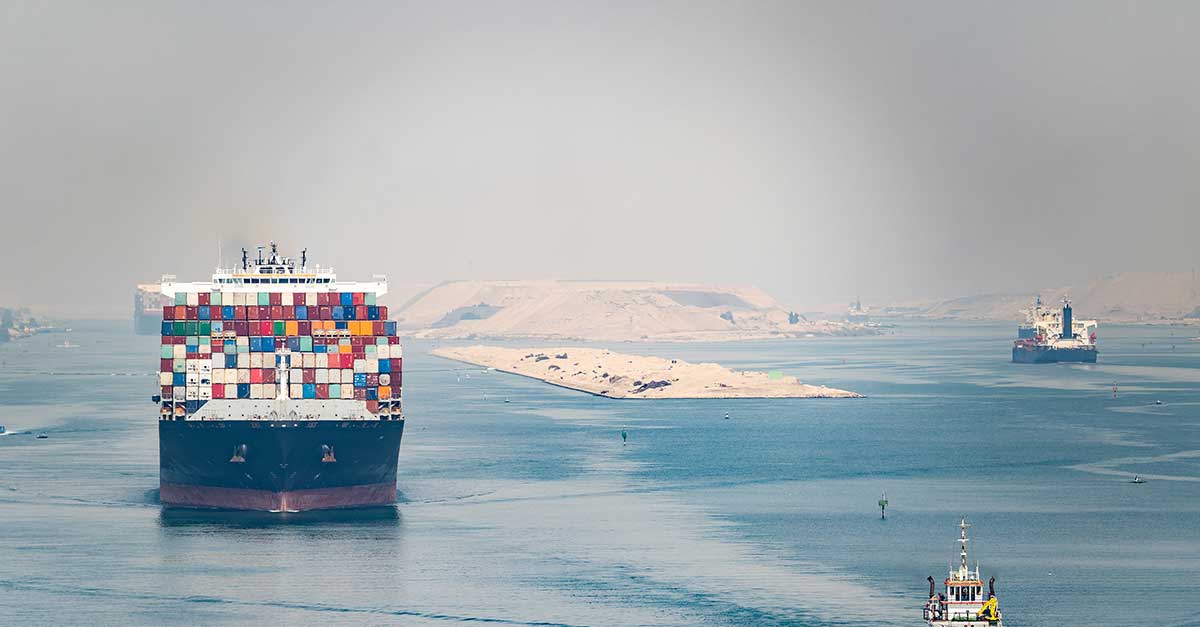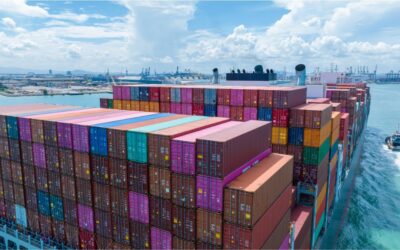Red Sea Disruption Update
The Red Sea crisis has been ongoing for more than a year and the situation still remains volatile.
Power struggles in Syria adds to the volatility. Amongst celebrations from many Syrians of getting rid of the old regime, a power struggle has emerged between internal groups in Syria intermixed with military action in the country from Israel, Turkey and the US with Russia and Iran also trying to exert influence on the new emerging power struggle.
The Red Sea crisis is linked to the current Middle East turmoil and the rapidly unfolding development in Syria makes it even more difficult to predict how this will affect the Red Sea crisis.
The leader of the Houthies have made a televised speech trying to levy pressure on Saudi Arabia. In the speech he claims the Houthies to have complete control over preventing Israeli vessels, as well as vessels belonging to countries carrying cargo for Israel to transit the Red Sea. He said: “In recent days, control over Israeli maritime navigation in the Red Sea has reached 100%.”
He added: “Were it not for the unfortunate Arab support and the Arab land bridge supplying the Israeli enemy with goods, the costs for the Israeli enemy would have been far greater.”
The leader goes on to say that the ceasefire agreement in Lebanon does not mark the end of the conflict as the Israeli threat to Lebanon persists. In turn, this could indicate that a ceasefire in Gaza may not necessarily lead to the reopening of the Red Sea.
Keep up to date with the very latest news on the Red Sea situation and download our disruption report.

Understanding the situation
With over 30% of global containerised traffic moving through the Suez Canal, the unavoidable decision to reroute vessels away from it will have a profound impact on supply chains to and from Asia. Currently, it is too early to ascertain what level of impact this will be and we are working closely with the shipping lines to keep abreast of the latest developments.
Our Assumptions
What we are experiencing now is similar to the pandemic evolution in logistics and the Suez Canal blockage over the last few years, only at a much quicker pace of disruption and impact. Freight costs and insurance premiums are almost certain to rise, as shipping lines pass on the additional costs of the extended voyages.
Surcharges: New surcharges being applied to both spot and contract rate agreements.
Equipment: Shortage of equipment due to the additional transit times – not enough equipment being available in carrier’s stocks.
Miss sailings: There could be weeks where there are high levels of missing sailings due to the additional transit time of the vessels.
Port Congestion: Port congestions in all European ports is expected.
Trucks: Shortage of trucking.
Global Trade Impacts
As the disruption and rerouting continues, we outline the impacts to global trade.
Trade Routes: Many trade routes that rely on the Red Sea as a crucial passage connecting Europe with Asia have been impacted by the disruption. The specific routes effected by the disruption are those between Asia, the Indian Subcontinent and Europe. Trade between the Middle East and Europe has also been impacted alongside trade between the Americas and the Asia and Indian Subcontinent.
Schedule Delays: The current schedule delays between Europe and Asia will have significant impacts on the trade between the continents, with gaps and port omissions expected in the coming weeks.
Space Limitations: Space supply will be impacted as the longer transit times are expected to absorb 20% of global capacity. At this moment in time, there are no replacement vessels to fill this shortage, likely impacting other trades very quickly.
Predicted Impacts – Rates & Equipment
As the disruption and rerouting continues, we’re predicting the following impacts to rates and equipment.
Rates: Rates are expected to increase in relation to the longer distances travelled by carriers operating, higher bunker consumption and reduced capacity.
Supply Chains: Supply chain issues are likely in the upcoming weeks due to the extended transit times of equipment, impacting the return supply of equipment to Asia and exacerbating the anticipated delays in arrivals.
Tariffs: Higher tariffs exceeding free time is likely to be implemented to ensure equipment moves back as fast as possible to origin countries.
Our early assumptions on the intel we have on the current situation includes:
- No early end to Red Sea crisis in sight.
- Freight costs and insurance premiums are almost certain to rise, as shipping lines pass on the additional costs of the extended voyages.
- New surcharges being applied to both spot and contract rate agreements.
- Shortage of equipment due to the additional transit times – not enough equipment being available in carrier’s stocks.
- There could be weeks where there are high levels of missing sailings due to the additional transit time of the vessels.
- Port congestions in all European ports is expected.
- Shortage of trucking.
How are carriers responding?
All carriers are now looking to reroute their vessels via The Cape of Good Hope, which impacts the transit time by 10-14 days approx.
The additional nautical miles adds on another 3000 miles to the journey from Asia which will also incur additional fuel and also put severe pressure on the services being operated, we can see this having a major impact on all supply chains, below is what I see currently going to potentially happen.
If all services that would usually go via Suez now re-route via the Cape it would add 3-4 weeks to transit times on total round trip voyages, effectively removing approx 25% of capacity and would also mean that equipment shortages will become a major issue again.
Re-routing via the Panama Canal is not an option as the typical vessel size operated on the trades transiting via Suez are too large, with the situation compounded by the ongoing drought situation.
Uniserve is ready to support during this uncertainty and turmoil
In light of the recent events in the Red Sea, Uniserve stands ready to provide essential assistance amidst this period of uncertainty and upheaval to supply chains.
Drawing from our previous extensive expertise in handling supply chain disruptions, we are more than equipped to support our clients through potential turmoil caused by this situation.
- We operate our own equipment throughout Asia & Europe and can pool these assets to support in case of equipment shortages.
- Agile and robust network support from across the continent and utilisation of our short sea solutions and European container transport operations to overcome instances where containers are not discharged within the UK.
- Off dock storage support throughout the UK to ease inbound DC congestion caused by vessel arrival disruption.
- Off dock storage at key manufacturing origins throughout the globe.
- Warehousing and logistics support throughout the UK.
- Air, air/sea freight services and European multimodal solutions for urgent or time-critical shipment requirements.
Enabling the flow of International Trade with our Global Warehousing Solutions
During this period of uncertainty and with the situation in the Red Sea constantly changing, vessel storage space has been impacted and supply chains are disrupted. Our teams remain on hand to provide temporary storage solutions.
As well as off dock storage solutions at key manufacturing origins throughout the UK and globally, we can offer cost-effective temporary warehousing solutions across multiple international locations:
- China
- Indian Subcontinent
- Southeast Asia
We are ready to help!
If you would like to speak to someone about this update or for details about our service solutions mentioned, please contact our Customer Relationship Management team today on 01375 856060 or email crmteam@ugroup.co.uk.
FOLLOW US
Unrivalled Ocean Freight
Award Winning Airfreight
Premium European Services
Fill in the fields and get the latest news
DON’T MISS A THING
Subscribe now to receive our monthly market update straight into your inbox
Sea freight Containers: How to choose the right one for you
Discover the different types of sea freight containers, their dimensions, and how to choose the right sea freight container for your shipping needs.
Understanding the air freight process
Learn about the air freight process, from booking to final delivery. Discover how Uniserve ensures efficient, secure, and seamless air freight solutions.
How to find the right air freight services for your business
Air freight plays a critical role in global logistics, offering businesses a fast and reliable way to move goods across international markets. Whether transporting high-value items, time-sensitive products or perishable goods, air freight services provide the speed...



